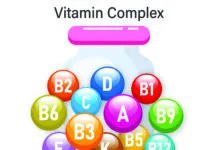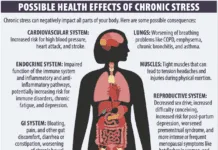L-theanine – Definition – L-theanine is an amino acid, or protein building block, that is water soluble; it is found in tea and some mushrooms. Relevance – L-theanine has been associated with being protective against stroke and cancer, and a potential source of stress relief with relaxant and antioxidant effects.
Lactose – Definition – Lactose is a sugar found naturally in milk and milk products. Relevance – Lactose intolerance is highly prevalent and characterized by an inability to digest lactose due to an absence of the enzyme lactase; symptoms of abdominal pain, gas, bloating, and nausea can be managed with dietary changes.
LDL – Definition – Low-density lipoproteins (LDL) are small packages made of fat on the outside and protein on the inside that carry cholesterol throughout the body. Relevance – High LDL (“bad”) blood cholesterol can lead to a buildup of cholesterol in the arteries, forming plaques and increasing the risk of heart disease.
Leaky gut – Definition – A popularized term for increased intestinal permeability. When permeability of the small intestine is increased (such as in celiac disease), unwelcome molecules (such as gluten fragments) can pass through gaps between the epithelial cells of the gut wall to the underlying gut tissue (the lamina propria). Relevance – When immune cells guarding the gut wall encounter unwelcome molecules, that may set off an inflammatory reaction.
Lectins– Definition – Components of plants (legumes, grains, nuts and seeds) used to defend against animals trying to eat the plant. Lectins can cause digestive upset when eaten raw. Relevance – Lectins are significantly reduced when the foods that contain them are prepared with heat (particularly moist heat) and therefore can be safely eaten by people when adequately cooked.
Lens – Definition – A transparent, flexible tissue of the eye, located directly behind the iris and pupil. It helps focus light and images on your retina. Relevance – In cataracts, proteins in the lens of the eye become damaged, resulting in blurry, hazy vision. If untreated (by surgery), blindness can result.
Leptin – Definition – A hormone produced by fat cells that helps regulate appetite and calorie burn (metabolism). Relevance – If you become overweight or obese, your brain can become resistant to leptin’s appetite-suppressing effects. That resistance can result in more hunger and slower metabolism.
LGG – Definition – A beneficial probiotic bacteria used in some supplements. The “GG” is in honor of two Tufts University scientists, Sherwood Gorbach, MD, and Barry Goldin, PhD, who discovered it in the 1980s. The bacteria’s scientific name is Lactobacillus rhamnosus ATCC 53103. Relevance – Research suggests several potential benefits of LGG, such as in helping prevent antibiotic-associated diarrhea and helping reduce risk of viral gut infections (such as rotavirus) in children.
Linoleic acid – Definition – Linoleic is an essential polyunsaturated fatty acid, the most abundant in the diet. Relevance – Linoleic acid is important to cell membranes in the body and can be used in cell signaling and as an energy source; linoleic acid is found in plant oils, nuts, seeds, meat and eggs.
Lutein – Definition – Lutein is a nutrient found in green leafy vegetables and eggs, often with zeaxanthin, both of which have been shown to benefit eye health. Relevance – Lutein and zeaxanthin are the only two naturally-occurring carotenoids that are highly concentrated in the eyes. In the retina, they can reduce the risk of cataracts and age-related macular degenerative by filtering harmful blue light and acting as antioxidants.
Lycopene – Definition – Lycopene is a carotenoid pigment that gives some red fruits and vegetables their color and exists in high amounts in tomatoes and tomato products. Relevance – Studies have shown that lycopene may help in preventing prostate, breast, lung, colon, bladder, pancreatic and ovarian cancer, as well as heart disease and atherosclerosis.


























